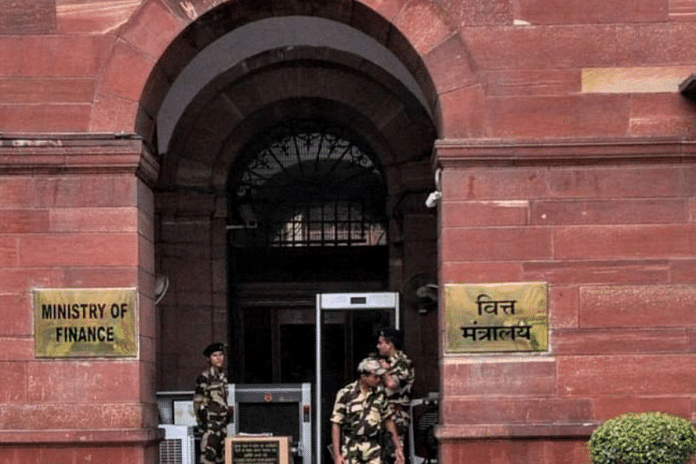New Delhi: If the government chooses to disinvest its shareholding from all its listed companies while still retaining control, it can stand to earn about Rs 3.5 lakh crore, an analysis by the Bank of Baroda (BoB) has shown.
The analysis, reviewed by ThePrint, assumed that the government will retain a minimum shareholding of 51 per cent in all its 53 listed companies. Taking the latest market capitalisation of these companies, the analysis found that if the government reduces its shareholding to 51 per cent in each of these companies, it could earn Rs 1.7 lakh crore from the non-financial companies and Rs 1.8 lakh crore from 14 financial institutions, including banks.
“In the current fiscal year, we are noticing that disinvestment receipts are running much behind the revised target also,” said the analysis. “Compared with FY23RE (revised estimate of 2022-23 financial year) of Rs 50,000 crore, the government has, so far, garnered only Rs 31,000 crore.”
“In this brief analysis we look at the potential resources that can be collected through disinvestment working on the premise that the government continues to hold 51 per cent share in all the PSUs, including those in the financial sector,” the report said.
This will indicate the maximum amount that can be raised without any change in the ideology of government ownership at current market prices, it added.
The report, however, does mention that these numbers should be viewed with caution since they do not incorporate the strategic and non-strategic nature of the sectors these companies are in.
Why issue of strategic and non-strategic sectors is important
The issue of strategic and non-strategic sectors is important because, according to the government’s Public Sector Enterprises Policy, the government would retain a “bare minimum presence” in the sectors it deems strategic— atomic energy, space and defence, transport and telecommunications, power, petroleum, coal and other minerals, as well as banking, insurance and financial services.
In all the other sectors, “Central Public Sector Enterprises (CPSEs) will be privatised, otherwise shall be closed,” the report said.
As such, the quantum of what the government can earn from disinvestment is far more than what is estimated by the Bank of Baroda analysis. That is, while the Bank has assumed a minimum government shareholding of 51 per cent in all the companies, the government has said it is open to reducing its shareholding to zero in many of these.
“This is when the market is very high (Sensex above 60,000),” the BoB report said. “This amount can come down if there is a sharp correction in the market and can also go up as the economy revives and grows at an accelerated pace in the future,” it added.
(Edited by Richa Mishra)
Also Read: GDP data shows how well Nirmala Sitharaman handled pandemic economy. Critics judged too soon



